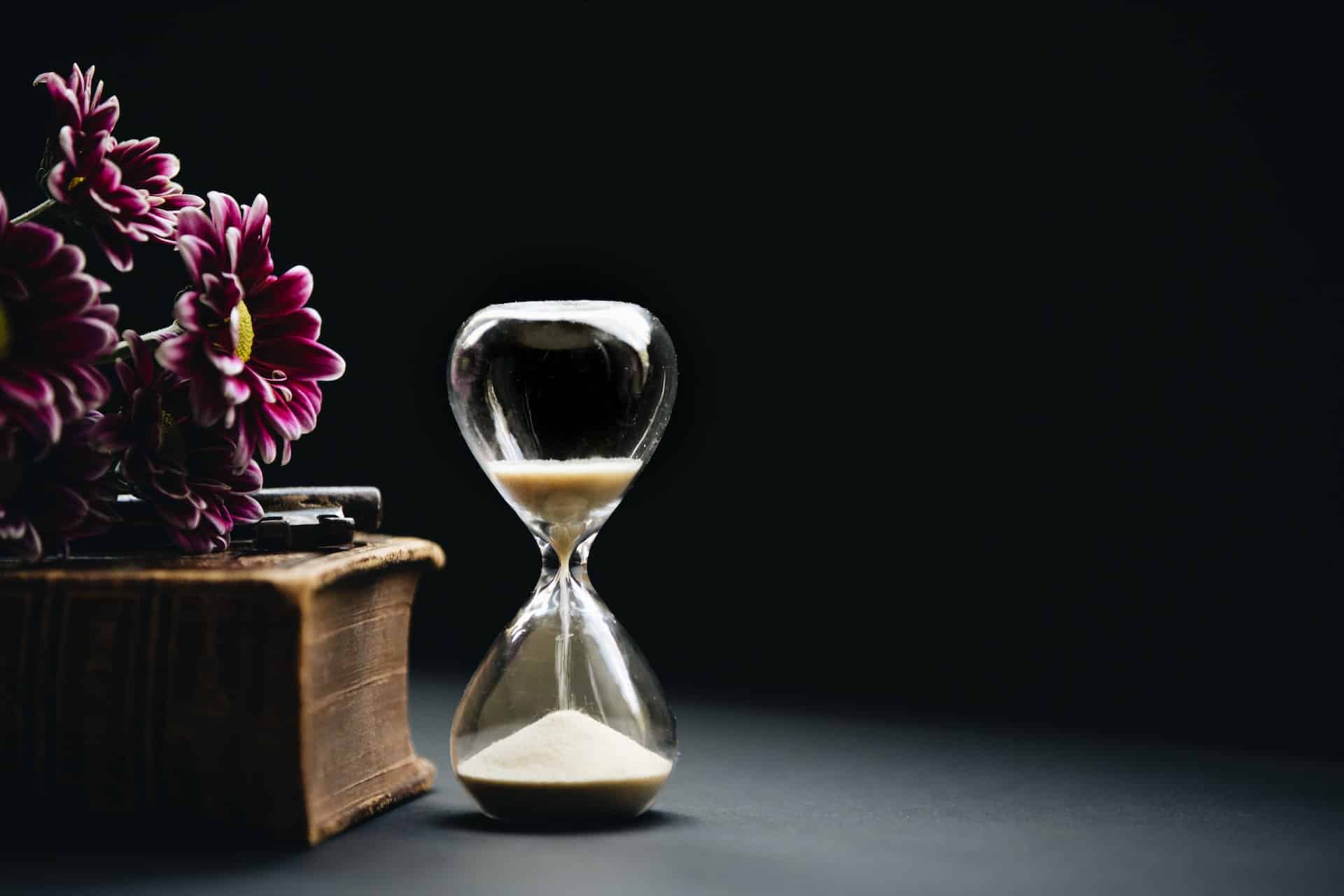








Introduction
If you’re reading this then you’ve probably wondered about how to get rid of alcohol addiction but you also have to know how to quit alcohol safely if you’ve developed a full-blown addiction. Alcohol is one of the few substances that can kill you if you attempt to go ‘cold turkey’ so you need to know how to stop drinking alcohol if you want to do it safely and successfully.
In this comprehensive article, we’ll help you identify if you have problems with alcohol. This can be hard to gauge because of how normalised alcohol is in most cultures. We also review the signs of alcohol addiction and offer tips so you can learn how to stop drinking alcohol every night, for example. You will also learn the importance of understanding your addiction and setting goals.
How Do I Know If I’m An Alcoholic?
Before you ask yourself the question “How do I quit drinking?” it would help to understand if you have a problem with alcohol. You may have wondered this because of how you use alcohol but let’s be specific:
- if you’ve noticed that your tolerance for alcohol has increased over time, this means that you need more of the drug to achieve the desired effect. This is normal and does not in itself mean you have a problem with alcoholism. But if you notice physical or emotional symptoms when you try and cut down or stop drinking, you’ve likely developed a physiological addiction or emotional and psychological dependence.
- You may also feel out of control, for example, you fail to limit the frequency and amount you drink so you will likely have tried and failed to cut down or quit.
- Another indicator is spending a lot of time obtaining, using, or recovering from the effects of alcohol. When this happens, you may wonder about how to stop drinking but notice that despite the consequences, like neglecting responsibilities or social activities and experiencing physical, mental, or social problems, you still can’t stop drinking.
- If your drinking affects things like work, family, or hobbies because you no longer enjoy these and prioritise drinking, and isolate yourself, you are likely dealing with alcoholism.
- At this stage you’re also more likely to take risks, like drunk driving. In such situations, people are usually in denial and behave secretively so think about whether this is what you do.
- Another sign of an addiction is deteriorating physical health, such as liver problems or other alcohol-related illnesses. This happens because the person has continued to drink despite ill health. After all, they simply cannot stop.
What Are The Signs I Need To Stop Drinking Alcohol?
Blackouts or Lapses in Memory
A sure sign it’s time to think about how to quit alcohol safely is if you experience regular blackouts, or periods of memory loss. These often occur when taking alcohol in excess. Blackouts happen because the brain is unable to form new memories while intoxicated.
Relationship Problems
It’s time to think about how to quit drinking if you’re having regular conflicts with friends, family, or spouses because of your behaviour, as relates to alcohol. For example, arguments, emotional distance, or a communication breakdown.
Neglecting Professional and Family Responsibilities
If you’re failing to fulfil your obligations toward work or family because of alcohol then it’s time to consider how to stop drinking alcohol. Examples of problems include absenteeism, neglecting childcare or household responsibilities, or poor job performance.
Experiencing Withdrawal Symptoms
As mentioned, withdrawal symptoms indicate physical alcohol dependence which means it’s hard to quit immediately. Withdrawal symptoms can include tremors, anxiety, nausea, sweating, irritability, and insomnia when attempting to cut down or stop drinking. So the aim might initially be about how to stop drinking alcohol every night, rather than quit instantly.
Alcohol Poisoning Symptoms
Alcohol poisoning is severe and can be life-threatening. Symptoms include confusion, vomiting, seizures, slow or irregular breathing, and unconsciousness. Emergency medical attention is essential when this happens. So it’s crucial to learn how to quit drinking if you experience alcohol poisoning on a somewhat regular basis.
Physical Health Issues
Long-term alcohol use can lead to many health problems. These include liver disease, cardiovascular issues, pancreatitis, weakened immune system, and an increased risk of certain cancers. These are very serious and life-threatening, so if you’re concerned, it might be important to consider how to quit alcohol.
Mental Health Issues
Alcohol abuse is linked to mental health problems like depression, anxiety, and an increased risk of suicide. Alcoholism exacerbates existing mental health conditions or contributes to the development of new ones. The addiction itself is a mental health issue, so it’s important to learn how to get rid of alcohol addiction if you’re struggling with this and other mental health problems.
Financial Problems
If you spend a considerable amount of money on alcohol, you’re possibly going to end up with financial problems. It’s time to ask yourself “How do I quit drinking?“ if you’re essentially neglecting financial responsibilities, accumulating debt, or experiencing economic hardship because of an alcohol habit, which only hinders your ability to improve the situation.
Isolation and Social Withdrawal
If you’re avoiding social activities and withdrawing from friends and family because you’d rather drink, you may need to seriously consider how to stop drinking. Social withdrawal often leads to feelings of loneliness and makes mental health issues worse.
Legal Issues
You must get help with how to stop drinking alcohol if you find yourself engaging in risky behaviours when under the influence of alcohol. Especially if you consider the legal ramifications of this. For example, driving under the influence, public intoxication, or other alcohol-related offenses can all land you in legal trouble, and may even lead to your death, or the death of someone else.
Decline in Personal Hygiene
You know you have a problem and may need to think about how to stop drinking alcohol every night if you’re neglecting personal care, hygiene, and grooming because of alcohol misuse. This is because over-consumption of alcohol can create a lack of attention to self-care because of the preoccupation with drinking.
Loss of Interest in Hobbies and Activities
Losing interest in activities that were once enjoyable or fulfilling because you prioritise alcohol and can only enjoy yourself when drinking is a sure sign that you need to get help with how to quit drinking. This is a vicious cycle, in which the one enjoyment (drinking), becomes harder to enjoy because of an increased alcohol tolerance, leading to – you guessed it – more consumption.
Denial and Rationalisation
It’s hard to think about how to stop drinking alcohol if you’re not even able to admit and acknowledge the impact of alcohol use on yourself and others. Rationalising or minimising the negative consequences of drinking is a common defence mechanism that needs to be worked through first before you can seriously ask yourself: How do I quit drinking?
Tips For How to Stop Alcohol Addiction
Talk With A Doctor
If you’re reading this and recognise some of the above signs, you may still be unsure about whether you have an alcohol addiction. Whether you do or not, it’s likely you still want to improve your or someone else’s relationship with alcohol. One way to understand if there is a problem with alcohol is to consult your regular GP who will know your medical history. Your GP will ask about alcohol consumption, related symptoms, and overall health, and may conduct a physical examination to assess your general well-being. Your physician may also use standardised screening tools to assess the severity of alcohol use and its impact on your life. They’ll also provide information about the potential risks associated with alcohol consumption and discuss healthy drinking guidelines. Through their advice, you can learn about how to reduce or quit drinking. Furthermore, your GP may refer you to a specialist for a more in-depth assessment and targeted intervention, if this is necessary, this might be a psychiatrist, psychologist, or addiction counsellor,
Know Your Why
If you want to know how to stop drinking alcohol, it matters to know why you have an alcohol problem in the first place. By understanding the underlying motivations and reasons behind your relationship with alcohol you and any professional you work with is better informed. Exploring your ‘why’ will help you understand your behaviours so you can make informed choices about your relationship with alcohol. When it comes to answering the question of “How do I quit drinking?” your understanding about why offers a foundation for creating personalised strategies and interventions for change .
Exploring your reasons for alcohol addiction will involve some self-reflection, you might learn about how you use alcohol as a coping mechanism and why you need such a coping mechanism. You can also understand how social factors act as triggers, or if you use the drug as a means of escaping or avoiding certain aspects of your life. It can also help to understand whether alcohol use has become a routine or habit and whether it’s associated with specific activities or times of day. Other triggers that prompt drinking can be emotional, for example, stress, loneliness, boredom, or unresolved trauma. Whatever the why, understanding is vital for your treatment.
Set Your Goals
When you’re trying to learn how to stop alcohol addiction and move toward the admirable goal of sobriety, it’s important to establish clear and individualised goals at the outset. You might start by thinking about the kind of life you want for yourself and your loved ones. It’s therefore important to think about short and long-term aims so that your goals around how to stop drinking are achievable rather than daunting. So whether you want improved physical health, stronger relationships, professional accomplishments, or enhanced mental wellbeing, it’s important to be clear about your aspirations. This is because when goals are clear, they can be made measurable. This provides a roadmap for progress and helps you stay focused and motivated.
With something as difficult as how to stop drinking alcohol, it’s necessary to set realistic benchmarks for reducing or abstaining from alcohol. For example, for something like how to stop drinking alcohol every night, you would have to also consider fostering healthier coping mechanisms, one of which might be to rebuild social connections. It’s helpful to share your goals with a trusted support system, whether friends, family, or healthcare professionals. This will ensure a support network that encourages your success on the path of how to quit drinking. It’s good to regularly revisit and adjust your goals as needed, celebrating achievements and learning from setbacks. By defining your path and objectives, you will feel stronger and this helps navigate the challenges of alcohol cessation with purpose and determination.
Remove Access To Alcohol
One way to help learn how to stop drinking alcohol is by creating an environment conducive to sobriety. Indeed, if you wanted to reduce your intake of sugary foods, you’d probably buy less. So if you want to help yourself know how to stop drinking alcohol every night you have to be proactive. This means having no access to alcohol by identifying sources in your living space and removing the temptation, including disposing of any remaining alcohol. Be sure to tell friends and family so you can gain their support in maintaining an alcohol-free environment. Avoid places or events where alcohol will become a temptation so you can manage potential triggers. You might create new routines that don’t involve drinking, fostering healthier habits. If you have community resources or support groups available, use them. By proactively limiting access to alcohol, you create a foundation for positive change, reducing the likelihood of relapse and reinforcing your commitment to a life free from its influence.
Manage Cravings
One way how to quit drinking is to manage cravings. This is crucial for success and the first step is to understand and accept that the presence of cravings is normal, without judgment. This is where coping strategies are helpful. For example, you might learn about mindfulness, and deep breathing, or begin engaging in alternative activities to redirect your focus. Another way to manage cravings is by using your support network; by reaching out to friends, family, or support groups, you will be able to manage during challenging moments. It’s also helpful to identify triggers that encourage cravings and proactively avoid or address them. Make healthy lifestyle choices, including regular exercise and balanced nutrition, to enhance overall wellbeing and resilience. Remember that cravings are temporary, and with time, their intensity tends to reduce. By establishing coping mechanisms and accessing support, you can effectively manage cravings toward sustained recovery.
Discover Your Triggers
If you want to know how to stop drinking alcohol and maintain your recovery, you have to understand what triggers you to drink alcohol. This is a crucial piece of the puzzle toward recovery because if you’re unaware of your temptations and triggers, you’ll miss the bumps in the road and fall off the wagon when they hit. Triggers can be all sorts of things, ranging from environmental cues to emotional stressors. Take time to self-reflect and think about the kinds of situations, emotions, or contexts that usually precede cravings or the urge to drink. These triggers may include stress, social events, specific places, or even certain emotions like loneliness or anxiety. When you’ve identified your triggers you can develop coping mechanisms that are tailored to each trigger. For example, if you know you associate drinking with particular places, people, or situations, you might take a break from some of these. By recognising and addressing triggers, you take proactive control by implementing tools and strategies needed to make informed choices, reduce the likelihood of relapse, and encourage a sustainable, alcohol-free lifestyle.
Write In A Journal
If for example, you want to learn how to stop drinking alcohol every night, writing in a journal is even more likely to help you stay on track. By regularly documenting thoughts, emotions, and experiences, you create a tangible record of your triggers, progress, and victories. The journal can be used to help you explore your reasons for drinking. You’ll be able to see patterns and areas for growth. It can help to record your goals, both short and long-term and track achievements and setbacks. It’s also helpful to think about the impact of sobriety on your physical and mental well-being as this creates a deeper understanding of your process. You can also write down strategies you’ve tried to help you manage cravings, and challenging situations. Your journal can be the private space you need for self-expression or you can share it with your therapist or support group for valuable insights.
Discover New Hobbies And Activities
When it comes to how to quit drinking, it’s not just about breaking old habits, but also discovering new passions. Think about the kinds of things you once enjoyed or have never tried but want to. What might fill the void that abstinence leaves, how can you experience joy and fulfilment? Try different things, for example, you could look into something creative, like art, music, or writing. There are also physical activities such as hiking, sports, or yoga. Try clubs, classes, or communities that align with your newfound interests, providing opportunities for social connection and personal growth. These activities not only serve as distractions from cravings but by trying new and exciting things, you develop new interests that offer you something positive to focus on and enhance your overall wellbeing – all of which will keep you on track!
Find Your Support Network
One answer to the question of How do I quit drinking, is taking support. Sobriety is a hard endeavour on your own so build a robust network of support around yourself. This will be the backdrop to your successful recovery from alcohol addiction. Think about who in your life offers you understanding, empathy, and encouragement. Your support network may include family, friends, support groups, or sponsors with experience in recovery. These people can help you if you include them in your recovery so let them know about your goals, challenges, and progress. They can also offer emotional reinforcement during difficult times by offering perspectives, advice, and shared experiences.
If you can, attend support group meetings where you can connect with people who have faced similar struggles, this will foster a sense of community. Let people hold you accountable so you can be committed to your goals. The collective strength of your support network becomes a safety net during moments of vulnerability, preventing isolation and promoting resilience. Regularly engaging with your support system not only reinforces your commitment to sobriety but also provides opportunities for shared accomplishments, creating a supportive environment that contributes significantly to a sustained, healthier lifestyle. Remember, successful recovery is a shared journey, and finding your support net is a powerful step toward lasting positive change.
Know Relapses Are Common
It’s important to know that when you’re learning how to stop drinking alcohol that it’s not a straightforward path. But it’s important to understand the difference between a lapse and a relapse. A lapse is a smaller setback, whereas a relapse is more serious. By understanding and accepting that lapses and relapses are a common part of the recovery process, you are more likely to see them as a setback, rather than a failure, and by seeing them in this way, you’re more likely to get back on the wagon and continue on the road to recovery. This helps build resilience and resolve. In Cognitive Behavioural Therapy, we say there is no such thing as failure, it’s all feedback; something to learn from. We can identify new triggers and make adjustments, developing specific coping strategies. So by using lapses or relapses as a motivator, they become opportunities for self-reflection, learning, and growth. This can reinforce commitment and offer a sense of control.
Celebrate Milestones
If you admit to yourself that you have a problem with alcohol and have since learned how to stop drinking alcohol every night, it’s so important that you recognise your amazing achievement. By celebrating milestones that you’ve set for yourself, you offer yourself a dose of motivation and self-reinforcement. Whether your milestones are recorded in days, weeks, months, or more, they demonstrate your ability to progress and commit. Take time to reflect on your achievements, and think about the positive changes you’ve made in your life. Link rewards to milestones, so you can feel the satisfaction in an even bigger way, and the joy of the reward too! Doing this not only reinforces your dedication to a healthier, alcohol-free lifestyle but also provides essential moments of reflection, boosting confidence and resilience on the path to sustained recovery.
Reach Out To A Therapist
If you’re struggling with alcoholism and are serious about making changes, you might consider finding a psychotherapist who has experience with this very serious psychological issue. A psychological therapist will be able to help you address the emotional and psychological aspects of alcohol dependence. We can provide a confidential and safe space for you to explore the underlying issues, help you identify triggers, and work together to develop a personalised plan, which includes helpful coping strategies. We will give you professional guidance and help you understand the ‘underneath’ of your alcohol problem, that is., the root causes of your alcohol use. Together we will create a focused treatment plan that will help you to answer the question of “How do I quit drinking?” With the help of a therapist, you can work toward building resilience, increase your self-awareness, and improve your wellbeing and life. Your therapist can be the much-needed dedicated ally, someone who will be in your corner and help you navigate challenges, ultimately facilitating a successful and sustained recovery.
What Happens When You Stop Drinking Alcohol
When you’re considering how to stop drinking alcohol you must also consider the changes that will likely occur if you’ve been consistently misusing alcohol. For example, when you stop drinking, your body will go through a process of adjustment, which may result in withdrawal symptoms. Your health and the level of consumption will determine how long these symptoms last and how severe they are.
Some common withdrawal symptoms include:
Anxiety and Irritability: Feelings of nervousness, restlessness, and increased irritability.
Insomnia: Difficulty falling asleep or staying asleep during the night.
Nausea and Vomiting: Upset stomach, nausea, and in some cases, vomiting.
Sweating and Clammy Skin: Experiencing excessive sweating and clamminess.
Tremors: Shaking or trembling, especially in the hands.
Increased Heart Rate: Elevated heart rate and palpitations.
Depression: Feelings of sadness, hopelessness, and a general lack of interest in activities.
Mood Swings: Fluctuations in mood, including irritability, agitation, and emotional highs and lows.
Fatigue: Generalised weakness, tiredness, and lack of energy.
Headache: Persistent headaches or migraines.
Loss of Appetite: Decreased interest in eating or loss of appetite.
Difficulty Concentrating: Challenges in focusing or concentrating on tasks.
In severe cases, withdrawal symptoms can progress to more serious conditions such as hallucinations, seizures, and delirium tremens. Alcohol withdrawal can be dangerous, especially for those who have a history of heavy or prolonged drinking. In such cases, it’s important to seek medical guidance to ensure a safe and supervised withdrawal process. This means symptoms are monitored, and medical options and support are available to help manage withdrawal effects.
Benefits Of Quitting Drinking Alcohol
Improved Mental Health: Because alcohol can exacerbate things like loneliness, anxiety, and depression. By quitting, you are likely to notice a change in such symptoms, and this leads to improved overall mental wellbeing.
Better Mood: Because alcohol is no longer impacting your mental health, you’re likely to experience a better general mood, which is more consistently stable and positive. The fluctuations caused by alcohol will be no more and your emotional state will feel balanced, leading to increased overall happiness.
Better Focus and Concentration: Alcohol affects cognitive function so by eliminating it, cognitive function is enhanced. This means you’ll be able to focus and concentrate better, you’ll have more mental clarity, and be able to perform tasks more efficiently, including making good decisions.
Improved Personal Relationships: By not drinking, you’re more able to be present around, and for people. You will be better able to communicate and this can help build personal relationships by fostering trust and emotional connection. Alcohol often disrupts relationships for all sorts of reasons, its absence can help them become more fulfilling for all involved.
Enhanced Physical Health: As mentioned, alcohol has many physical health risks so quitting brings several health benefits, including improved liver function, reduced risk of cardiovascular diseases, and better overall immune system function.
Increased Energy Levels: Alcohol is a depressant, which means it slows down your nervous system, and things like speech and affect. Without its sedative effects, you will experience an increase in energy levels, which means you will be able to be more productive and engaged in your life.
Better Sleep Quality: Alcohol’s soporific effects negatively affect sleep patterns. It can help you fall asleep easier but affects your ability to enter more restful sleep states. By abstaining, you will experience improved sleep quality, which will make you feel more rested.
Financial Savings: Alcohol is expensive, and this adds up if one has an addiction. By abstaining, you’re likely to save a significant amount of money that can be used for more fulfilling and meaningful pursuits.
Personal Growth and Development: The process of quitting alcohol offers a foundation for personal growth. Without the challenges that alcohol problems bring, individuals are no longer hindered and can focus on self-improvement and setting and achieving personal goals.
Enhanced Emotional Resilience: Being sober means you can build emotional resilience. People often develop healthier coping mechanisms to help them stay on track, this means other life challenges can be tackled with greater adaptability and strength.
How Long Does It Take to Quit Drinking?
Recovery is an ongoing process and will be different for each person, this means the timeline also varies between people. Every stage of the process has its challenges so this is why the support of healthcare professionals or support groups can be invaluable and greatly improve the chances of success at every stage of the quitting process.
So although the quitting and recovery process is different for everyone based on things like the extent of alcohol use, individual health, and the presence of a support system, there is a general overview of what may happen across different phases after quitting drinking:
First Week: Withdrawal Symptoms: Physical symptoms such as anxiety, irritability, insomnia, nausea, and headaches may occur. It’s crucial to stay hydrated and seek medical supervision if severe symptoms occur.
First Month: Physical Recovery: Many physical symptoms start to improve, including better sleep, increased energy, and improved digestion. However, emotional and psychological challenges may still arise.
Three Months: Mental and Emotional Changes: Mental clarity, improved mood, and reduced anxiety become more noticeable. Individuals may start experiencing the psychological benefits of being sober.
Six Months: Establishing New Habits: By this point, people often establish healthier routines and coping mechanisms. Relationships may improve, and a sense of accomplishment begins to set in.
One Year: Stabilised Lifestyle: Many people have successfully navigated triggers and challenges, leading to a stabilised, alcohol-free lifestyle. Improved physical and mental health continues, and confidence in sobriety grows.
Beyond One Year: Sustained Recovery: Long-term recovery involves ongoing commitment and vigilance. Individuals may continue to experience personal growth, strengthened relationships, and the consolidation of a satisfying, alcohol-free life.
The Bottom Line
In conclusion, learning how to quit drinking is a big step and a life-changing experience. Alcohol treatment is fraught with challenges but also physical, mental, and emotional benefits. These benefits unfold gradually, with initial challenges giving way to enhanced wellbeing and personal growth. It’s a commitment that shows determination and offers self-discovery. If you or someone you know needs this kind of change, hopefully, you will realise the value of professional guidance, and building a strong support network. Both of these can significantly contribute to sustained recovery. A life free from alcohol may seem unappealing in ways but it brings about positive changes in health, relationships, and overall quality of life, which when rediscovered, are more than worth the swap. The bottom line is that the decision to quit drinking is a powerful commitment to one’s wellbeing and the pursuit of a fulfilling, alcohol-free future.
- Why Is Suicide So Prevalent In KPOP? RIP Moon Bin
- PTSD: Case Study of Thomas Shelby
- Paedophilic Obsessive-Compulsive Disorder (POCD) I
- The Value Of Confronting Self-Doubt As A Psychotherapist
- What Happens When Trauma Is Ignored, Vs When It's Not
- A Warm Welcome From Phinity Therapy
- Rehanna Talks Issues
- Rehanna Discusses Phinity Services
- The HEALTHIER WAY To Grieve
- What Your THERAPIST'S TITLE REALLY MEANS!








